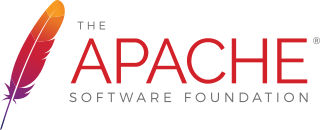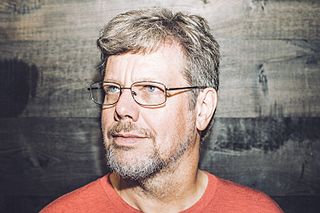Related Research Articles

The GNU Lesser General Public License (LGPL) is a free-software license published by the Free Software Foundation (FSF). The license allows developers and companies to use and integrate a software component released under the LGPL into their own software without being required by the terms of a strong copyleft license to release the source code of their own components. However, any developer who modifies an LGPL-covered component is required to make their modified version available under the same LGPL license. For proprietary software, code under the LGPL is usually used in the form of a shared library, so that there is a clear separation between the proprietary and LGPL components. The LGPL is primarily used for software libraries, although it is also used by some stand-alone applications.

Python is a high-level, general-purpose programming language. Its design philosophy emphasizes code readability with the use of significant indentation. Its language constructs and object-oriented approach aim to help programmers write clear, logical code for small- and large-scale projects.
Zope is a family of free and open-source web application servers written in Python, and their associated online community. Zope stands for "Z Object Publishing Environment", and was the first system using the now common object publishing methodology for the Web. Zope has been called a Python killer app, an application that helped put Python in the spotlight.
Viral license is an alternative name for copyleft licenses, especially the GPL, that allows derivative works only when permissions are preserved in modified versions of the work. Copyleft licenses include several common open-source and free content licenses, such as the GNU General Public License (GPL) and the Creative Commons Attribution-Sharealike license.

The Apache License is a permissive free software license written by the Apache Software Foundation (ASF). It allows users to use the software for any purpose, to distribute it, to modify it, and to distribute modified versions of the software under the terms of the license, without concern for royalties. The ASF and its projects release their software products under the Apache License. The license is also used by many non-ASF projects.

Guido van Rossum is a Dutch programmer best known as the creator of the Python programming language, for which he was the "benevolent dictator for life" (BDFL) until he stepped down from the position in July 2018. He remained a member of the Python Steering Council through 2019, and withdrew from nominations for the 2020 election.
Jython is an implementation of the Python programming language designed to run on the Java platform. The implementation was formerly known as JPython until 1999.
CeCILL is a free software license adapted to both international and French legal matters, in the spirit of and retaining compatibility with the GNU General Public License (GPL).
A permissive software license, sometimes also called BSD-like or BSD-style license, is a free-software license which instead of copyleft protections, carries only minimal restrictions on how the software can be used, modified, and redistributed, usually including a warranty disclaimer. Examples include the GNU All-permissive License, MIT License, BSD licenses, Apple Public Source License and Apache license. As of 2016, the most popular free-software license is the permissive MIT license.
Komodo Edit is a free and open source text editor for dynamic programming languages. It was introduced in January 2007 to complement ActiveState's commercial Komodo IDE. As of version 4.3, Komodo Edit is built atop the Open Komodo project. Komodo IDE is no longer supported and maintained by developers for python.

The Eclipse Public License (EPL) is a free and open source software license most notably used for the Eclipse IDE and other projects by the Eclipse Foundation. It replaces the Common Public License (CPL) and removes certain terms relating to litigations related to patents.

The Python Software Foundation License (PSFL) is a BSD-style, permissive software license which is compatible with the GNU General Public License (GPL). Its primary use is for distribution of the Python project software and its documentation. Since the license is permissive, it allows proprietization of the derivations. The PSFL is listed as approved on both FSF's approved licenses list, and OSI's approved licenses list.
This comparison only covers software licenses which have a linked Wikipedia article for details and which are approved by at least one of the following expert groups: the Free Software Foundation, the Open Source Initiative, the Debian Project and the Fedora Project. For a list of licenses not specifically intended for software, see List of free-content licences.
License proliferation is the phenomenon of an abundance of already existing and the continued creation of new software licenses for software and software packages in the FOSS ecosystem. License proliferation affects the whole FOSS ecosystem negatively by the burden of increasingly complex license selection, license interaction, and license compatibility considerations.
License compatibility is a legal framework that allows for pieces of software with different software licenses to be distributed together. The need for such a framework arises because the different licenses can contain contradictory requirements, rendering it impossible to legally combine source code from separately-licensed software in order to create and publish a new program. Proprietary licenses are generally program-specific and incompatible; authors must negotiate to combine code. Copyleft licenses are deliberately incompatible with proprietary licenses, in order to prevent copyleft software from being re-licensed under a proprietary license, turning it into proprietary software. Many copyleft licenses explicitly allow relicensing under some other copyleft licenses. Permissive licenses are compatible with everything, including proprietary licenses; there is thus no guarantee that all derived works will remain under a permissive license.

A free-software license is a notice that grants the recipient of a piece of software extensive rights to modify and redistribute that software. These actions are usually prohibited by copyright law, but the rights-holder of a piece of software can remove these restrictions by accompanying the software with a software license which grants the recipient these rights. Software using such a license is free software as conferred by the copyright holder. Free-software licenses are applied to software in source code and also binary object-code form, as the copyright law recognizes both forms.
BSD licenses are a family of permissive free software licenses, imposing minimal restrictions on the use and distribution of covered software. This is in contrast to copyleft licenses, which have share-alike requirements. The original BSD license was used for its namesake, the Berkeley Software Distribution (BSD), a Unix-like operating system. The original version has since been revised, and its descendants are referred to as modified BSD licenses.

The GNU General Public License is a series of widely used free software licenses that guarantee end users the four freedoms to run, study, share, and modify the software. The license was the first copyleft for general use and were originally written by the founder of the Free Software Foundation (FSF), Richard Stallman, for the GNU Project. The license grant the recipients of a computer program the rights of the Free Software Definition. These GPL series are all copyleft licenses, which means that any derivative work must be distributed under the same or equivalent license terms. It is more restrictive than the Lesser General Public License and even further distinct from the more widely used permissive software licenses BSD, MIT, and Apache.

The GNU Free Documentation License is a copyleft license for free documentation, designed by the Free Software Foundation (FSF) for the GNU Project. It is similar to the GNU General Public License, giving readers the rights to copy, redistribute, and modify a work and requires all copies and derivatives to be available under the same license. Copies may also be sold commercially, but, if produced in larger quantities, the original document or source code must be made available to the work's recipient.

The programming language Python was conceived in the late 1980s, and its implementation was started in December 1989 by Guido van Rossum at CWI in the Netherlands as a successor to ABC capable of exception handling and interfacing with the Amoeba operating system. Van Rossum is Python's principal author, and his continuing central role in deciding the direction of Python is reflected in the title given to him by the Python community, Benevolent Dictator for Life (BDFL).. Python was named after the BBC TV show Monty Python's Flying Circus.
References
- 1 2 "License of Python 1.6a2 and earlier versions". Free Software Foundation. List of licenses.
"License of Python 1.6b1 through 2.0 and 2.1". Free Software Foundation. List of licenses.
"License of Python 2.0.1, 2.1.1, and newer versions". Free Software Foundation. List of licenses. - ↑ History and License Python
- ↑ "Python 3.3.4 license" . Retrieved April 15, 2014.
- ↑ "Python 2.5 license (with historical notes)". Python.org. Retrieved March 31, 2008.